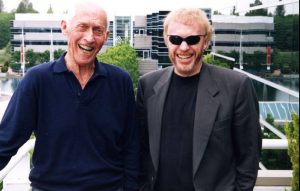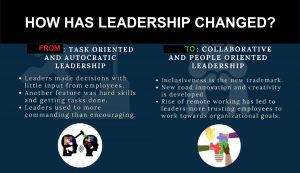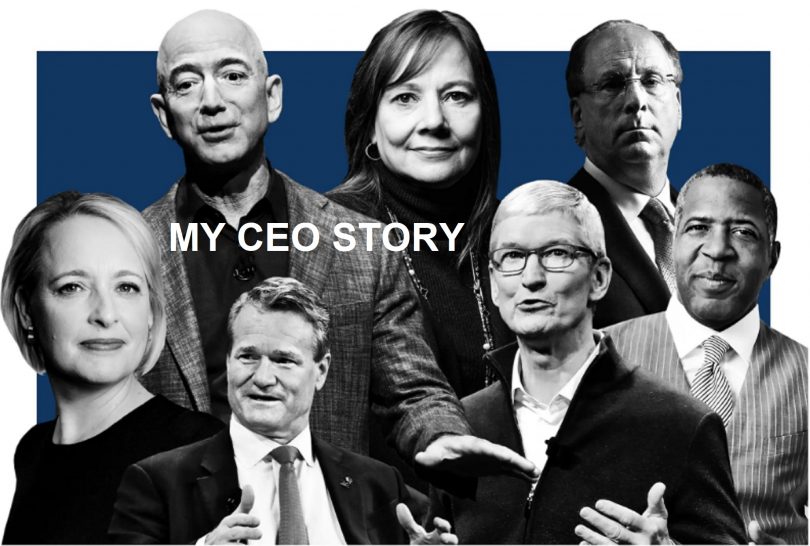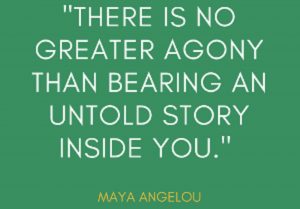Table of Contents
If you’ve had the privilege to read about the CEO of Google and Alphabet, Sundar Pichai, you’d understand the significance of personal anecdotes as a C-suite executive. Pichai craftily narrates how his modest Indian background influenced his work ethic and made him an exceptional CEO.
Unsurprisingly, Pichai also learned to embrace narratives and mentorship to skyrocket his career. He’s alive to the reality that CEOs must create and spread a story that effectively influences emotions to help the business.
Luckily, at the heart of every successful CEO lies a rich resource of personal tales that unfold through family history. Besides shaping your identity, family history shapes the ethos of a leader, influencing mindset, fostering resilience, and carving out a distinctive leadership style. Therefore, understanding where you come from, the stories of your forefathers, and the values they held provides a profound insight into the fabric of your identity.
This guide unravels the profound connection between personal narratives and the art of leadership, taking cues from the life stories of accomplished CEOs.
Successful CEOs Using Personal Narratives to Their Advantage
Besides Google and Alphabet CEOs, a long list of successful C-suite executives have their personal narratives, most of which are readily available online. Below, we highlight five CEOs in leading global companies whose personal narratives have remained iconic.
1. Oprah Winfrey

Oprah in a conference discussing her book “Build the Life You Want.”
Oprah is the CEO of Harpo Productions and Oprah Winfrey Network (OWN). Being a television personality and entrepreneur, her narrative is spread throughout her numerous interviews and shows. However, her latest book, “Build the Life You Want,” covers most of what you can learn as a C-suite executive.
Key points have been her traumatic and abusive upbringing and how she had to persevere sexism, racism, and poverty. Oprah’s story of empowerment and resilience resonates with millions around the world.
2. Nike’s Phil Knight and Bill Bowerman

Phil Knight and Bill Bowerman at Nike World Campus in 1999.
As the story goes, Phil was a track athlete who teamed up with his coach, Bill, to create innovative, high-performance shoes for athletes. The result was a successful athletic footwear and apparel corporation, Nike.
While much of the ex-CEO’s personal stories is covered in Phil’s “Shoe Dog” memoir, the Nike website also clarifies their vision and highlights achievements like creating Nike Air technology. The company’s logo, slogan, and products convey its values and identity.
3. Maple Leaf Foods Inc.’s Michael McCain

Michael McCain was CEO when Maple Foods became the world’s first major carbon-neutral food company.
Curtis Frank recently became the new Maple Leaf Foods president and CEO, replacing Michael McCain, who served for 25 years. Michael is now the company’s Executive Chair of the Board of Directors.
McCain’s 25-year tenure has earned him overreaching recognition as among the most admired and influential leaders. Most notable was his extensive sustainability plan that made Maple Leaf Foods the world’s first major carbon-neutral food company.
He has extensively shared his personal story in interviews, on the Maple Leaf Foods website, and in the book “The New Entrepreneurs: Building a Green Economy for the Future” by Andrew Heintzman and Evan Solomon.
4. Microsoft CEO, Satya Nadella

Microsoft CEO Satya Nadella has mastered the art of storytelling in the many conferences where Microsoft participates.
Much of Satya Nadella’s personal narrative is available in his 2017 memoir Hit Refresh: The Quest to Rediscover Microsoft’s Soul and Imagine a Better Future for Everyone. Here, the Microsoft CEO narrates his background, struggles, and achievements.
However, Satya’s story is also evident in his contributions throughout his career. For example, he transformed Microsoft’s culture to focus on customer obsession, growth mindset, and digital transformation. The acquisitions of GitHub and LinkedIn and the launch of Microsoft Teams and Azure happened during his tenure.
In his memoir, Satya discusses his family, revealing how his eldest son, with cerebral palsy, inspired him to advocate for empathy and accessibility in technology and society passionately.
5. GM CEO, Mary Barra

General Motors CEO Mary Barra addresses the Global Business Conference for investors.
Barra is the first woman to lead one of the big three automakers in the U.S. and has most of her narrative covered in her book, “Driving Success: Leadership Lessons from Mary Barra’s Journey at GM.”
Barra’s story started when her dad worked at General Motors (GM) as a die-maker for about four decades. As a result, she developed an interest in automotive and engineering, pursuing all the right courses and eventually joining GM in 2014.
Her story depicts resilience and diversity, given her track record in profits and the market share she has earned for the company. Most importantly, she survived the ignition switch scandal and Covid challenges.
Why Do I Need Personal Narratives as A CEO?
Below are some of the reasons you need personal stories;
1. To Leverage the Power of Storytelling

The world is shaped by two things — stories told and the memories they leave behind.
Storytelling may be the most powerful tool in a CEO’s tool chest today. The market has become volatile and unpredictable, so you really need to build relationships even if you’re only used to specific fields like accounting and finance.
Here are the main reasons CEOs must be good storytellers.
- Foster Connection: Stakeholders, including employees, will likely develop a personal connection to the company when they can relate to its story. As a result, it boosts morale, employee retention, and overall job satisfaction.
- Clarifying the Vision: A CEO can help stakeholders understand the objectives and why they matter by crafting a narrative for the company’s direction and purpose.
- Expound The Significance of the Numbers: Engaging narratives can transform overwhelming data and metrics into engaging stories of goals achieved, progress, and challenges overcome.
- Inspiring Change: CEOs can highlight real-life examples of teams or people who adapted successfully to change to help employees humanize any change and make it more attainable.
- Brand Identity: Narratives can covey the company’s culture, mission, and values in a resonating way and help customers distinguish it from competitors.
- Navigate Crises: Storytelling is a powerful tool for CEOs to address the emotional aspect of a crisis and serve as a source of hope and inspiration.
2. To Adapt to the Shift in Effective Leadership

Personal narratives align with the concept of “narrative leadership” that has become an art for CEOs to master to become more effective and relatable.
CEOs also need to master personal narratives to adapt to the ongoing shift in C-suite-level leadership. The concept of “narrative leadership” has become an art for CEOs to master to become more effective and relatable.
This was a hard lesson for Netflix ex-co-CEO Reed Hastings when he became too dictatorial in his former company Pure Software. Eventually, Reed adopted a laissez-faire leadership approach at Netflix.
Moreover, the increase in female CEOs like GM’s Mary Barra, Citigroup’s Jane Fraser, and Oracle’s Safra Catz has also contributed to the leadership shift. With this number expected to soar, traditional feminine traits like humility, emotional intelligence, and interpersonal relationships will become a clever trait for CEOs.
3. To Steer the Corporate Culture

Corporate culture framework
In our review of the Proven Strategies For Aligning Corporate Culture With Family Ethics, we highlighted the need to align the corporate leadership with an overarching responsibility on issues like diversity, human rights, inclusion, equity, and climate change even if it means not making much profit.
For example, Maple Leaf Foods ex-CEO Michael McCain’s extensive sustainability plan showed that firms must be part of the solution to benefit future generations. He went head-on with the primacy of shareholders and investors, who normally pressure CEOs to focus on short-term gains and ignore long-term responsibility.
One of the easiest ways to align the corporate culture is through narratives and activities that demonstrate the company’s primary focus. In the case of a family business, it becomes imperative to understand the family narratives to have your decisions and objectives aligned with the true intentions of the founders or the family.
Encouraging personal narratives and family histories in the corporate culture creates a sense of belonging by:
- Celebrating the diversity of each stakeholder and recognizing their contribution to the company’s success.
- Fostering a strong personal connection to the company’s mission, vision, and purpose and demonstrating how they align with personal goals and values.
- Encouraging employees to study other people’s stories and share their experiences to learn from each other’s insights and perspectives.
- Building empathy, trust, and collaboration among employees and creating an inclusive and supportive environment where everyone feels respected and welcome.
- The result of all this is a motivated workforce whose benefit includes improved output, enhanced customer satisfaction, increased morale, and reduced turnover and recruitment costs.
4. For Professional Success
Incorporating personal narratives, family history, and storytelling as a CEO can lead to professional success in the following ways:
- Enhancing qualities and skills such as communication, authenticity, influence, and vision.
- Build trust and rapport with employees, customers, partners, and investors.
- Inspiring and motivating others to follow suit, share their goals, and support the mission.
- Create a distinctive, strong brand that differentiates you from competitors and shows your actual value.
- Learning from past experiences and planning how to tackle challenges and pursue future opportunities.
How To Identify Suitable Narratives for Effective C-Suite Leadership

Prominent leaders including former president Barack Obama and Amazon founder and CEO Jeff Bezos created their personal narratives from their family heritage.
The most suitable personal narrative for you comes from your own story and background. As demonstrated through real-life examples, every CEO has a unique story to tell from the achievements, challenges, and values that drive them.
In the same way, the first place you need to look for clues is your family history. Where did you come from, who were your forefathers, what did they do, and how did it influence you or your family? In other words, the story of your identity, culture, and values and how it shaped your mindset, resilience, character, and leadership style.
Prominent leaders including former president Barack Obama and Jeff Bezos created their personal narrative from their family heritage. Obama acknowledges his ancestral roots and the optimism and resilience he witnessed in his father’s homeland as his major motivation.
“And Africa and its people have helped shape who I am and how I see the world. In the villages in Kenya where my father was born, I learned of my ancestors, and the life of my grandfather, the dreams of my father, the bonds of family that connect us all.” Obama said in his address to the African Union.
For that reason, he has passionately advocated for global cooperation, inclusion, and diversity in his leadership.
Similarly, Amazon CEO Jeff Bezos’ narrative applies to his pursuit of growth, excellence, and customer satisfaction. He discovered his father’s and ancestors’ roles in the Cuban revolution and learned from their courageous and adventurous spirit to form one of the big five American technology companies.
RecordClick.com As A Valuable Resource for Uncovering Untold Family Stories

Genealogy can help identify several topics for your authentic personal and family narratives.
Record Click lets you discover your family history and personal narratives through personalized and affordable genealogy services. We also offer free family tree templates to add or view photos and your family lineage.
Our expert genealogists and in-house DNA experts will guide you throughout the research and help identify aspects that can form compelling personal narratives for your profession. Their access to millions of resources such as military, immigration, census, birth, marriage, and death records can offer valuable insights about your ancestor’s lives, occupations, struggles, relationships, and achievements.
Some of the crucial aspects that could convey family narratives for a CEO in their family history include:
- Family Origin and Migration: The stories of the family’s origin and migration can reveal its cultural background resilience and adaptability. Tracing your roots to a different country or continent can show how your ancestors’ journey influenced your worldview and business vision as a CEO.
- Family Traditions and Rituals: Genealogy also unearths the family’s identity, customs, and values reflected in how it celebrates milestones, holidays, and everyday events. As a CEO, you can share how these family traditions shape your morals and leadership style.
- Family Achievements and Challenges: Family history research can inspire gratitude, ambition, and pride by revealing how your family overcame their difficulties, accomplished their goals, and impacted the world.The challenges and achievements of the activists, innovators, or entrepreneurs in your family are a solid source of motivation to make a difference as a C-suite executive.
Grab the free consultation to inquire more about your case and kickstart your discovery of personal narratives to skyrocket your leadership and career.
How To Apply Personal Narratives for Effective Leadership
Once you have a comprehensive family history report that offers insights into your family and personal life, it’s time to tell your personal narrative. Whatever the report says, you need to remove the filters and be comfortable sharing with people openly.
A narrative that demonstrates authenticity and vulnerability builds trust with your audience and inspires them to follow your vision.
However, not all narratives fit all situations. You need to choose the narratives with a context and meaningful message to the audience. Your story should be relevant to the business problem and demonstrate how you learned from your experience and applied leadership roles.
For example, suppose you have an internal audience and want to introduce change in operations. In that case, you can narrate your previous experience of change-what it involved, the challenges, lessons, and how you embraced it.
However, a personal or family story full of pride and manipulation risks offending or alienating your audience if they find it inappropriate for the situation. Therefore, the personal narrative you incorporate in the CEO storytelling strategy should align with the values and serve a higher purpose than your self-interest.
Steps For CEOs To Incorporate Family Narratives into Their Professional Storytelling

Great business leaders should use narratives to inspire and lead others.
With all the benefits that family and personal narratives can add to the company and personal brand, you need to follow these steps to instill them into your professional storytelling:
- Speeches and Presentations: Public speeches, presentations, and keynotes offer the best opportunity to make your personal narratives relatable and compelling.
- Internal Communication: Showcase personal growth and vulnerability in your stories to reflect your values, resilience, and guiding principles.
- Highlight Projects and Milestones: Use your personal journey to highlight the parallels with the company’s growth and milestones.
- Thought Leadership Articles and Blogs: Use your narrative to provide a unique perspective on industry trends or and make the complex concepts more available.
- Engage on Social Media: Share your story on social media platforms, connecting it to trending or current business concepts while encouraging your audience to share their stories.
- Practice Social Responsibility: Tie your personal or family narrative to social responsibility efforts and inspire others to participate in philanthropy.
- Use Biographical Features: Include your biographical features in corporate publications showcasing your family background and how it shapes your approach to business and leadership.
These steps help C-suite executives create a more memorable and resonant impact while building a relatable and genuine personal brand.
What’s Your Personal CEO Story?
Of course, C-suite executives must practice rational business management behind the story, as the story alone cannot run a company. Nonetheless, getting people’s attention is critical in business, and one effective way to do so is with a great personal narrative.
From enhancing the corporate culture to professional success, the benefits of incorporating personal narratives in CEO storytelling techniques cannot be overemphasized.
Luckily, with Record Click, you can hire a genealogist to help you study your background and identify critical aspects of your family and life that convey authentic and motivational personal narratives.
Contact us today or schedule a call.








